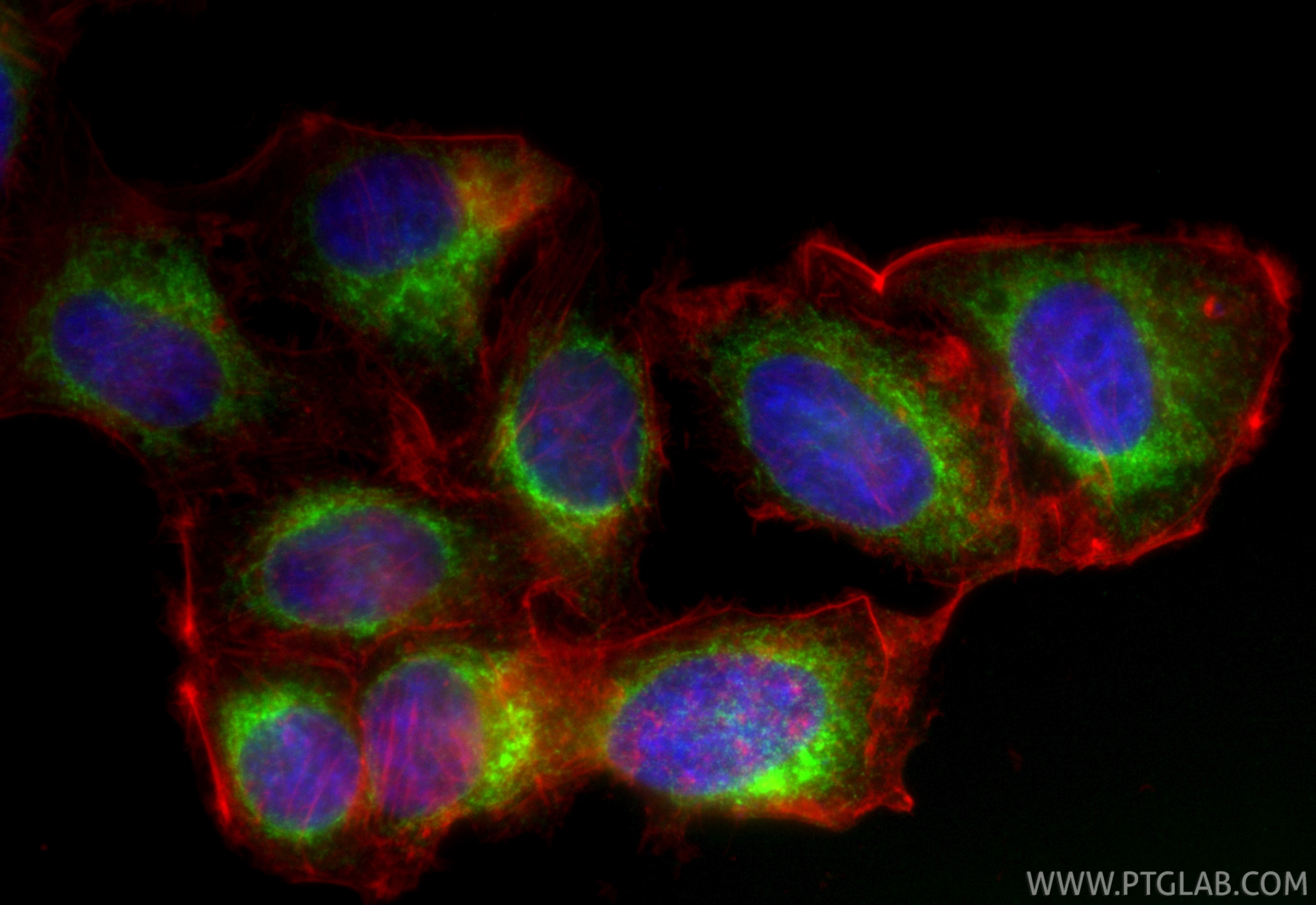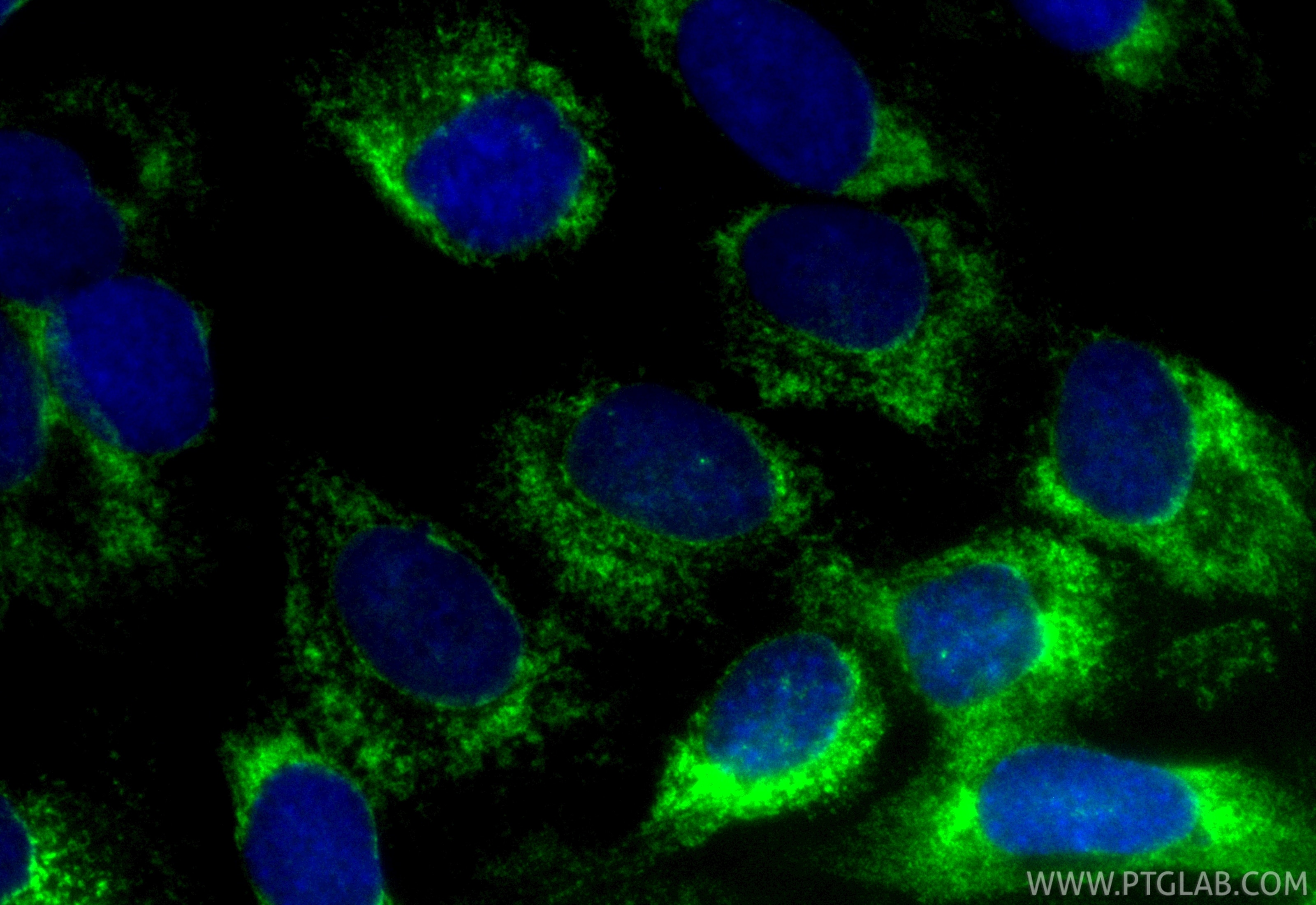Tested Applications
| Positive IF/ICC detected in | HepG2 cells, SKOV-3 cells |
Recommended dilution
| Application | Dilution |
|---|---|
| Immunofluorescence (IF)/ICC | IF/ICC : 1:50-1:500 |
| It is recommended that this reagent should be titrated in each testing system to obtain optimal results. | |
| Sample-dependent, Check data in validation data gallery. | |
Product Information
CL488-85681-4 targets KTN1 in IF/ICC applications and shows reactivity with human samples.
| Tested Reactivity | human |
| Host / Isotype | Rabbit / IgG |
| Class | Recombinant |
| Type | Antibody |
| Immunogen |
CatNo: Ag13854 Product name: Recombinant human KTN1 protein Source: e coli.-derived, PET28a Tag: 6*His Domain: 951-1306 aa of BC117132 Sequence: KSQIEQLKQQNYQQASSFPPHEELLKVISEREKEISGLWNELDSLKDAVEHQRKKNNDLREKNWEAMEALASTEKMLQDKVNKTSKERQQQVEAVELEAKEVLKKLFPKVSVPSNLSYGEWLHGFEKKAKECMAGTSGSEEVKVLEHKLKEADEMHTLLQLECEKYKSVLAETEGILQKLQRSVEQEENKWKVKVDESHKTIKQMQSSFTSSEQELERLRSENKDIENLRREREHLEMELEKAEMERSTYVTEVRELKAQLNETLTKLRTEQNERQKVAGDLHKAQQSLELIQSKIVKAAGDTTVIENSDVSPETESSEKETMSVSLNQTVTQLQQLLQAVNQQLTKEKEHYQVLE Predict reactive species |
| Full Name | kinectin 1 (kinesin receptor) |
| Calculated Molecular Weight | 1357 aa, 156 kDa |
| Observed Molecular Weight | 156 kDa |
| GenBank Accession Number | BC117132 |
| Gene Symbol | KTN1 |
| Gene ID (NCBI) | 3895 |
| Conjugate | CoraLite® Plus 488 Fluorescent Dye |
| Excitation/Emission Maxima Wavelengths | 493 nm / 522 nm |
| Form | Liquid |
| Purification Method | Protein A purification |
| UNIPROT ID | Q86UP2 |
| Storage Buffer | PBS with 50% glycerol, 0.05% Proclin300, 0.5% BSA, pH 7.3. |
| Storage Conditions | Store at -20°C. Avoid exposure to light. Stable for one year after shipment. Aliquoting is unnecessary for -20oC storage. |
Background Information
KTN1/Kinectin is an integral endoplasmic reticulum (ER) membrane protein which acts as dynamic anchor to facilitate ER membrane extension along microtubules. It has been found to bind kinesin, Rho GTPase, and translation elongation factor-1delta and gets involved in organelle motility and protein synthesis.
Protocols
| Product Specific Protocols | |
|---|---|
| IF protocol for CL Plus 488 KTN1 antibody CL488-85681-4 | Download protocol |
| Standard Protocols | |
|---|---|
| Click here to view our Standard Protocols |






